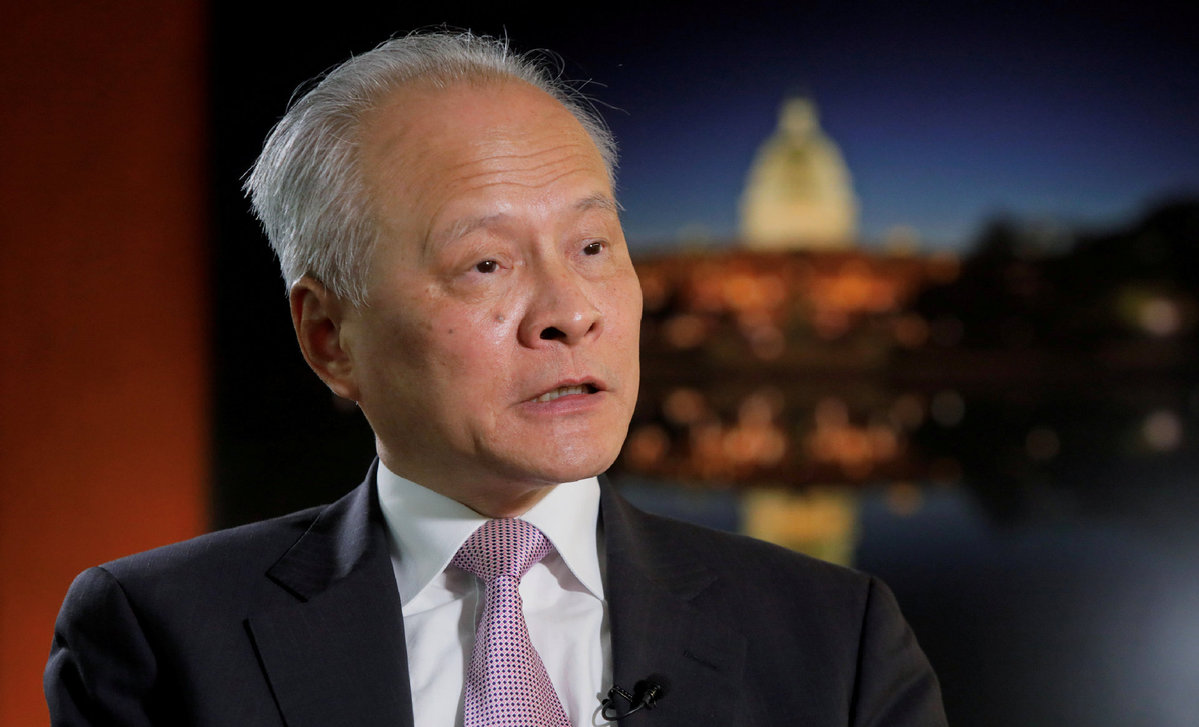China's US ambassador says allegations against Huawei 'groundless'


US accusations against Huawei Technologies are "groundless" and the White House's move to ban the transfer or sale of US technology to the Chinese telcom giant is "politically motivated", Chinese Ambassador to the United States Cui Tiankai said on Tuesday.
In commenting on some American security experts' allegation that China is going to spy on everything that flows through Huawei's 5G systems, Cui said the allegations are without any foundation and evidence.
"It's rather ironic that people who are making these accusations are exactly the group of people having such job descriptions," he said in an interview with Fox News.
The interview was conducted days after the US Commerce Department put Huawei and its affiliates on an "Entity List", which would restrict the sale or transfer of US technologies to the company.
The top envoy refuted as "groundless" claims that Huawei got funding from Chinese authorities and the military, saying that Huawei is a normal Chinese private company.
"So, all these actions taken against Huawei are politically motivated," Cui told Fox News anchor Bret Baier.
The ambassador expressed concerns that such actions will "really undermine" people's confidence in the normal function of the market and disrupt normal flows of trade and investment.
In addition, they will weaken people's belief in all the values that people used to preach like fairness, openness, competition, entrepreneurship and rule of law, he said.
On Tuesday, Ren Zhengfei, founder and president of Huawei Technologies, said Huawei is a commercial company, and the use of its products is a choice for consumers based on their likes and should not be linked to politics.
Cui also said Beijing was still open to trade talks, but he blamed the US side for frequently "changing its mind" in past rounds of trade negotiations.
He said a good trade deal between the two countries would serve the interests of both, and such kind of deal has to be made on the basis of mutual respect and mutual benefits.
"China remains ready to continue our talks with our American colleagues to reach a conclusion. Our door is still open," he said.
The two sides have yet to reach a deal though they have conducted 11 rounds of high-level economic and trade negotiations over the past year.
"If we review the process of trade talks between us over the last year or so, it's quite clear that it is the US side, that more than once, changed the mind overnight and broke the tentative deal already reached," Cui said.
"We are still committed to whatever we agree to do," he said. "But it is the US side that changes mind so often."
On Monday, Chinese Foreign Ministry spokesman Lu Kang also said that the US was seeking unreasonable interests by imposing maximum pressure, which was the fundamental reason behind the failure to reach a deal between the economic powers.
When Baier said that some in Washington believe that China is trying to wait out the Trump administration for whatever next administration comes in, Cui said, "We don't have such illusions. And also we don't want to have anything to do with the domestic politics here."




































